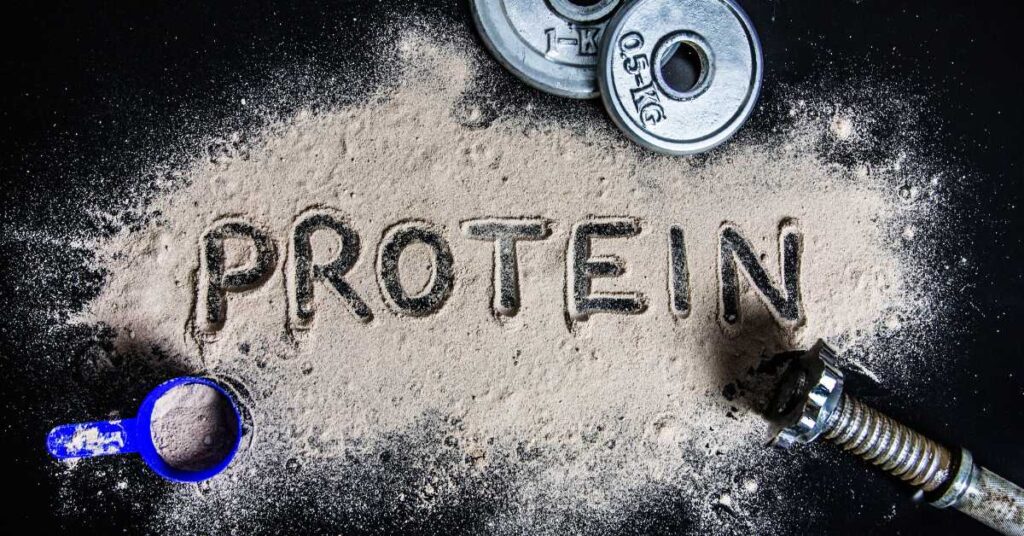Introduction
When it comes to athletic performance, proper nutrition plays a vital role in optimizing results. Among the macronutrients, protein stands out as a powerhouse for athletes seeking to enhance muscle recovery, repair, and growth.
Whether you’re a professional athlete or a fitness enthusiast, understanding the power of protein can take your performance to the next level. In this article, we’ll delve into the importance of protein for muscle recovery, explore its benefits, and provide practical tips for incorporating protein into your athletic nutrition regimen.
Why Protein is Essential for Athletes
The Building Blocks of Muscle: Amino Acids
Protein is made up of building blocks called amino acids, which are essential for the growth, repair, and maintenance of muscle tissue. When you engage in intense physical activity, your muscles undergo stress and micro-tears, which need to be repaired for optimal recovery.
Amino acids derived from dietary protein act as the raw materials for this repair process, ensuring that your muscles can bounce back stronger and more resilient.
Protein Synthesis and Muscle Repair
Protein synthesis is the process by which your body builds new proteins, including muscle tissue. Adequate protein intake stimulates protein synthesis, allowing your body to repair damaged muscle fibers and promote muscle growth.
By consuming protein-rich foods, you provide your body with the necessary amino acids to support this process and maximize muscle recovery.
Benefits of Protein for Muscle Recovery
Faster Recovery Time
One of the primary benefits of protein for athletes is its ability to speed up recovery time. By consuming protein after a workout or training session, you provide your muscles with the necessary nutrients to repair and rebuild.
This leads to a faster recovery, allowing you to bounce back quicker and perform at your best in subsequent workouts or competitions.
Reduced Muscle Soreness
Intense exercise often leads to muscle soreness and inflammation. Protein consumption can help alleviate these symptoms and reduce muscle damage.
Certain amino acids, such as leucine, have been shown to have anti-inflammatory properties, aiding in the recovery process and minimizing post-workout soreness.
Increased Muscle Protein Synthesis
As mentioned earlier, protein plays a key role in stimulating muscle protein synthesis. By providing your body with an adequate amount of protein, you enhance the rate at which your muscles repair and grow. This translates to improved muscle strength, size, and overall athletic performance.
Enhanced Muscle Adaptation
Regular exercise places a demand on your muscles, challenging them to adapt and become stronger. Protein consumption supports this adaptive process by providing the necessary amino acids to rebuild and reinforce muscle fibers.
With consistent protein intake, your muscles can adapt more effectively, leading to enhanced performance gains over time.
Determining Protein Requirements for Athletes
Individual Variations
Protein requirements can vary depending on factors such as body weight, training intensity, and specific athletic goals. While general guidelines exist, it’s important to consider individual variations and adjust protein intake accordingly.
Athletes involved in endurance activities may have different protein needs compared to those engaged in strength training or power-based sports.
Protein Intake Guidelines
A common guideline for athletes is to consume around 1.2 to 2.0 grams of protein per kilogram of body weight per day. This range ensures sufficient protein intake to support muscle recovery and adaptation. However, it’s crucial to work with a registered dietitian or nutritionist to determine the optimal protein intake for your specific needs and goals.
Best Sources of Protein for Athletes
Lean Meats and Poultry
Lean meats such as chicken, turkey, and lean cuts of beef are excellent sources of high-quality protein. They provide essential amino acids, vitamins, and minerals while being relatively low in fat. Grilling, baking, or broiling these meats can help maintain their nutritional value without adding excessive fats.
Fish and Seafood
Fish and seafood are not only rich in protein but also provide valuable omega-3 fatty acids, which have anti-inflammatory properties and support overall cardiovascular health.
Options like salmon, tuna, trout, and shrimp are great choices for athletes looking to boost their protein intake and reap the benefits of omega-3s.
Plant-Based Protein Sources
Plant-based protein sources are ideal for athletes following vegetarian or vegan diets or those looking to diversify their protein options.
Legumes, such as beans, lentils, and chickpeas, offer a good balance of protein, fiber, and carbohydrates. Additionally, tofu, tempeh, edamame, and quinoa are excellent plant-based protein sources that can be incorporated into a variety of meals.
Protein Supplements
While whole food sources are generally recommended, protein supplements can be convenient for athletes aiming to meet their protein requirements on the go.
Whey protein, casein protein, and plant-based protein powders are popular options. However, it’s important to remember that supplements should not replace whole food sources entirely and should be used as a complement to a well-rounded diet.
Timing and Distribution of Protein Intake
Pre-Workout Protein
Consuming protein before a workout can help prime your muscles for the exercise ahead and provide a readily available amino acid pool. Aim to consume a protein-rich snack or meal about one to two hours before your workout to ensure optimal utilization during training.
Post-Workout Protein
The post-workout period is a critical window for muscle recovery and repair. Consuming protein within the first hour after your workout is generally recommended to maximize muscle protein synthesis. Options such as protein shakes, Greek yogurt, or a balanced meal containing protein and carbohydrates can effectively replenish your muscles and kickstart the recovery process.
Protein Spacing throughout the Day
Rather than consuming all your protein in one or two large meals, aim to distribute it evenly throughout the day. This strategy helps maintain a constant supply of amino acids, allowing for sustained muscle protein synthesis. Including protein-rich snacks between meals and incorporating protein sources into each meal can help achieve this goal.
Strategies for Maximizing Protein Absorption
Protein Complementation
Certain plant-based protein sources may lack specific essential amino acids. However, by combining different plant-based protein sources, you can create a complete amino acid profile. For example, pairing rice and beans or hummus with whole-grain pita bread can provide a wide range of amino acids necessary for muscle recovery.
Digestive Enzymes
Some individuals may experience digestive discomfort when consuming protein-rich foods. In such cases, incorporating digestive enzymes, such as proteases, can aid in the breakdown and absorption of proteins. These enzymes can be found in supplement form or naturally in foods like pineapple and papaya.
Proper Hydration
Hydration is essential for optimal nutrient absorption, including protein. Adequate water intake ensures proper digestion and transport of nutrients to your muscles. Aim to drink water consistently throughout the day, especially during and after workouts, to support protein absorption and overall athletic performance.
Common Myths about Protein and Muscle Recovery
Myth #1: Excessive Protein Intake Leads to More Muscle
While protein is essential for muscle recovery, excessive intake doesn’t necessarily translate to more muscle growth. Consuming protein beyond your body’s needs won’t provide additional benefits and may strain your kidneys or lead to unnecessary calorie intake. Finding the right balance and following recommended guidelines is crucial.
Myth #2: Protein Supplements Are Mandatory for Athletes
Protein supplements can be convenient for meeting protein requirements, especially for athletes with high demands or specific dietary restrictions. However, they are not mandatory. With careful meal planning, athletes can obtain sufficient protein from whole food sources alone. Supplements should always be viewed as a supplement to a well-rounded diet, rather than a replacement.
Practical Tips for Incorporating Protein into Your Diet
Meal Planning and Prepping
Plan your meals in advance to ensure that you incorporate adequate protein into your daily diet. Include protein-rich foods as the centerpiece of your meals and build around them with vegetables, whole grains, and healthy fats.
Prepping meals and snacks in advance can also help ensure that you have convenient protein options readily available.
Protein-Rich Snack Ideas
Keep protein-rich snacks on hand to fuel your body between meals or when you’re on the go. Some ideas include Greek yogurt with berries, hard-boiled eggs, protein bars, cottage cheese with fruit, or a handful of nuts and seeds. These options provide a quick and easy way to boost your protein intake throughout the day.
Protein Shakes and Smoothies
Protein shakes and smoothies can be a convenient and delicious way to increase your protein intake. Blend your choice of protein powder with fruits, vegetables, and a liquid of your choice for a nutrient-packed and protein-rich beverage. Experiment with different flavors and ingredients to keep your shakes interesting and enjoyable.
Overcoming Challenges and Obstacles
Dietary Restrictions and Allergies
Athletes with dietary restrictions or allergies may face challenges when trying to meet their protein needs. However, there are numerous options available to accommodate various dietary preferences. For example, individuals following a plant-based diet can rely on legumes, tofu, tempeh, and other plant-based protein sources. Consulting with a registered dietitian or nutritionist can provide personalized guidance tailored to your specific needs.
Budget-Friendly Protein Sources
Protein-rich foods don’t have to break the bank. Opt for cost-effective protein sources such as eggs, canned tuna, Greek yogurt, and beans. These options offer a good balance between affordability and high-quality protein content. Buying in bulk, planning meals around sales, and incorporating seasonal produce can also help stretch your protein budget.
Tracking Progress and Adjusting Protein Intake
Regular Assessment of Performance and Recovery
Monitor your athletic performance and recovery regularly to gauge the effectiveness of your protein intake. Assess factors such as energy levels, muscle soreness, strength gains, and overall progress.
If you notice a plateau or lack of progress, it may be necessary to reevaluate and adjust your protein intake in consultation with a registered dietitian or nutritionist.
Consulting with a Registered Dietitian or Nutritionist
For personalized guidance and recommendations tailored to your specific athletic needs, consider consulting with a registered dietitian or nutritionist.
They can assess your current protein intake, help you set appropriate goals, and develop a nutrition plan that maximizes your muscle recovery and athletic performance.
Conclusion
In conclusion, protein is a crucial macronutrient for athletes aiming to optimize muscle recovery, repair, and growth. By providing the necessary amino acids and stimulating muscle protein synthesis, protein plays a significant role in enhancing athletic performance.
Whether you prefer animal-based or plant-based sources, incorporating high-quality protein into your diet, timing your intake strategically, and ensuring optimal absorption can make a substantial difference in your muscle recovery journey.
Remember, finding the right balance and individualizing your protein intake is key. So, take charge of your nutrition, harness the power of protein, and unlock your full athletic potential.
Frequently Asked Questions (FAQs)
Q1: Can I consume too much protein as an athlete? A: While protein is essential, excessive intake doesn’t necessarily translate to more muscle. It’s important to find the right balance and follow recommended guidelines to avoid potential health risks.
Q2: Are protein supplements necessary for athletes? A: While whole food sources are generally recommended, protein supplements can be convenient for meeting protein requirements. However, they are not mandatory, and a well-planned diet can provide sufficient protein for most athletes.
Q3: Can plant-based protein sources be as effective as animal-based sources for muscle recovery? A: Absolutely! Plant-based protein sources such as legumes, tofu, tempeh, and quinoa can provide ample protein for muscle recovery. It’s important to combine different plant-based sources to ensure a complete amino acid profile.
Q4: How soon after a workout should I consume protein for optimal recovery? A: Consuming protein within the first hour after your workout is generally recommended to maximize muscle recovery. This timing allows for efficient muscle protein synthesis and replenishment.
Q5: How can I ensure I’m getting enough protein on a budget? A: Opt for cost-effective protein sources such as eggs, canned tuna, Greek yogurt, and beans. These options offer a good balance between affordability and high-quality protein content.
Remember, consulting with a registered dietitian or nutritionist can provide personalized guidance tailored to your specific athletic needs and goals.
Disclaimer: When it comes to sport nutrition, always seek professional guidance and advice from medical professionals, nutritionists and other relevant professionals who will be in a position to better address specific concerns or issues related to your individual situation. In no event shall we be liable for any direct, indirect, incidental, special, or consequential damages arising out of or in connection with your use of this website or the content provided herein.







